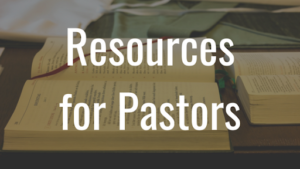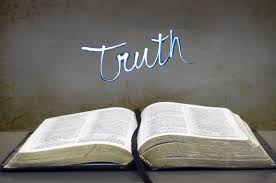In many societies in Africa, religion is a vital part of a person’s life. Not everyone knows it, but no society in Africa does not have some religious influence in their lives. Christianity in Africa has been influenced by the syncretism of ancestral beliefs, Egyptian beliefs, Greecian beliefs, Roman beliefs, and the Arabs and Eastern religions because of the Arab Muslim conquest in the 7th century and by European beliefs because of the colonization.
What does it mean to be religious in Africa? It means almost everything because religion deals with the whole of human life and death. For thousands of years, Africans have searched for the meaning of life. Their understanding of truth and the purpose of nature in the universe and religions is the result. In Africa, the people who mastered natural science were religious until the 18th century, where western civilization began to change their worldview, putting religion and science apart through exploration. We look at religion as the way of living within a community of people who share practices and beliefs in a God or gods, who gather in unique ways in the buildings, in a place for worship, meditation, or performing some ritual séances who live uniquely in their world.
Many of the African traditional religion is animism and ancestral worship which derive mostly from the Ancient Egyptian worship of created thing such the sun god, the moon god, the fertility god Osiris and Isis.
When the Egyptian Empire reached its highest point, the Pharaohs became deities. African religions influenced many societies throughout the world. The Egyptian culture influenced many societies with their religions until the Exodus. The One True God of Heaven YHWH (Yahweh) came down to destroy Egypt’s false deities and let the world know that there is only One true God. Deuteronomy 6:5 John 1:12 John 5:24-25 Matt 6:33.
Ancient Egypt is an example of how the area’s religion maintains common features over a long period, even while it absorbs changes and draws beliefs and customs. In Ancient Egyptian religious beliefs and practices changed whenever circumstances demanded it. Egypt is an oasis of 600 miles long made fertile by the Nile. The Land was divided into Upper Egypt in the south, isolated by the desert and separated by Lower Egypt in the Nile Delta that opens to the Mediterranean world.
The main Greek religions were the worship of the 12 Olympian deities, whose king Zeus resided among the mount Olympus peaks. Each deity had several different attributes. Apollo was the god of light and music. Athena was the goddess of wisdom and war and the patron god of security over Athens who was destroy by the Spartans with Trojan horse. The Greek deities were known to be sons of the Cyclops’ or the Giants known in the Bible as the Nephalim’s or the Anakims in Genesis 6. The Cyclops mentioned in Greek legends were one of the races of Giants which had only one eye in the center of the forehead (Intermediate Dictionary of Thorndike Barn Hart P.216.) The Greek had many other deities which were worshipped by the local people. Like in Africa, Polytheism and syncretism was the way of worship in Greek religion, but it was not official and organized like in Egypt.
The Diagnostics Questions of the Evangelism Explosion is the best way to start?
- What religion or church do you attend?
- If you were to die today, where will your soul be? Or is it something that you would say that you are still working on? The Bible says in 1 John 5:13 that these things I write to you so that you should know that you have eternal life. If a believer in any religion does not know where his soul will be after death, he has a spiritual and salvation problem that needs to be addressed. 1 John 5:13 Roman 3:23; 6:23 5:12; 10:9; John 1:12; 14:6; Rev 3:20; Eph 2:8-10. Do you believe in God the Father, God the Son, and God the Holy Spirit. (The Holy Trinity).
- What God or god or idols does your family or tribe worship? What is your Holy Scriptures or Book?
- What is your salvation experience? Is salvation obtained by grace or by work? Is salvation by grace through faith in Jesus Christ alone or Christ plus work? Eph 2:8-10
- Do you believe in the Holy Bible or the Bible plus good tradition? Rev 22:18~20. In many parts of Africa, some religious ceremonies are observed on certain days or on the new moon day.
Questions to identify False Religions and False Christianity in Africa
1. What is your personal testimony of salvation?
2. What are the tribal taboos or totems in your family?
3. What familiar spirits does your family worship?
4. What is the spiritual language do your family priest?
5. What is the spiritual languages your tribal priest?
6. What are the spiritual laws of your family, god, or gods?
7. What are the spiritual laws of your tribe? Or clan? Or region or country?
8. What is the official name of God in your mother tongue or language country?
9. What is the main religion of your family, tribe, or nation?
10. What is the main religion of your tribe and the kingdom of your ancestors?
11. What is the main religion of the colonial masters of your country?
12. What is main religion of your ancestors before colonization?
13. What is the main religion of your wife’s family, tribe, clan, and country?
14. What was your family’s spiritual language, of your tribe, of your ancestors before colonial time?
15. What tribal rituals or sacrifices are performed during the death of a family member or tribe?
16. What rituals or sacrifices are made during the dedication of a new baby?
15. What rituals or sacrifices are performed during a tribal wedding?
16. What your family or tribe performs rituals or sacrifices during a new moon and New Year?
17. What your family performs rituals or sacrifice before sowing seed on the ground during the raining season?
18. What your family or tribe performs rituals or sacrifices during the harvest time?
19. What rituals or sacrifices are performed during sickness or a pandemic?
20. What rituals or sacrifices are performed during a natural catastrophic event?
21. What acts are considered sinful acts in your traditional religion or culture?
22. What kinds of names are given to newborn babies in your family or tribe?
23. What is the meaning of your family name?
24. What are name of your gods of your family or tribe?
25. What spiritual names can be given to a new baby in your family?
26. What kind of natural things like the sun, moon, tree, river, mountain, lake, or events can be used to name a newborn baby?
27. What is the meaning of the names given to newborn babies by your family or tribe? Are those names biblical or spiritually related to the familiar spirit of the gods or spirits of the ancestors or tribe?
28. What religious name is mostly used in your family or tribe?
29. What is considered a major sin and a minor sin in your culture and tradition?
30. What is your family or tribal holy day?
31. What is the name of the church you attend?
32. What are the doctrines of your church or denomination that you attend?
33. What are the ordinances of your church or mission?
34. What religious ceremonies are performed during baptism in your church?
35. What religious ceremonies are performed before becoming a member of your church?
36. What religious ceremonies are performed during a death for a church member?
37. What religious ceremonies are performed during a church member weeding?
38. What religious ceremony is performed during a newborn dedication or Christening in church?
39. What is your tribal day of religious ceremony?
40. What is your tribal month of religious ceremony?



